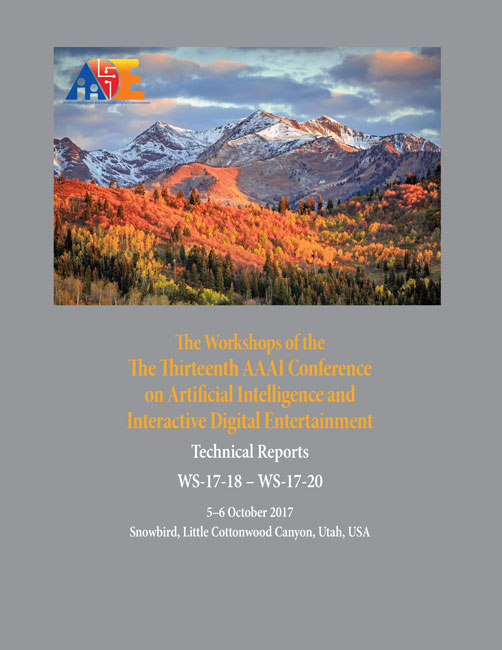Effects of Self-Knowledge: Once Bitten Twice Shy
DOI:
https://doi.org/10.1609/aiide.v13i2.12969Keywords:
non-playable characters, artificial intelligence, self-knowledgeAbstract
Procedurally generating rich, naturally behaving AI-controlled video game characters is an important open problem. In this paper we focus on a particular aspect of non-playable character (NPC) behavior, long favored by science-fiction writers. Specifically, we study the effects of self-knowledge on NPC behavior. To do so we adopt the well-known framework of agent-centered real-time heuristic search applied to the standard pathfinding task on video-game maps. Such search agents normally use a heuristic function to guide them around a map to the goal state. Heuristic functions are inaccurate underestimates of the remaining distance to goal. What if the agent somehow knew how long it (the agent) would actually take to reach the goal from each state? How would using such self-knowledge in place of a heuristic function affect the agent's behavior? We show that similarly to real life, knowing of one's irrational behavior in a situation can deter the agent from getting into that situation again even if it is, in fact, a part of an optimal solution. We demonstrate the "fear" with a simple example and empirically show that the issue is common in video-game pathfinding. We then analyze the issue theoretically and suggest that "fear" induced by self-knowledge is not a bug but a feature and may potentially be used to develop more naturally behaving NPCs.

